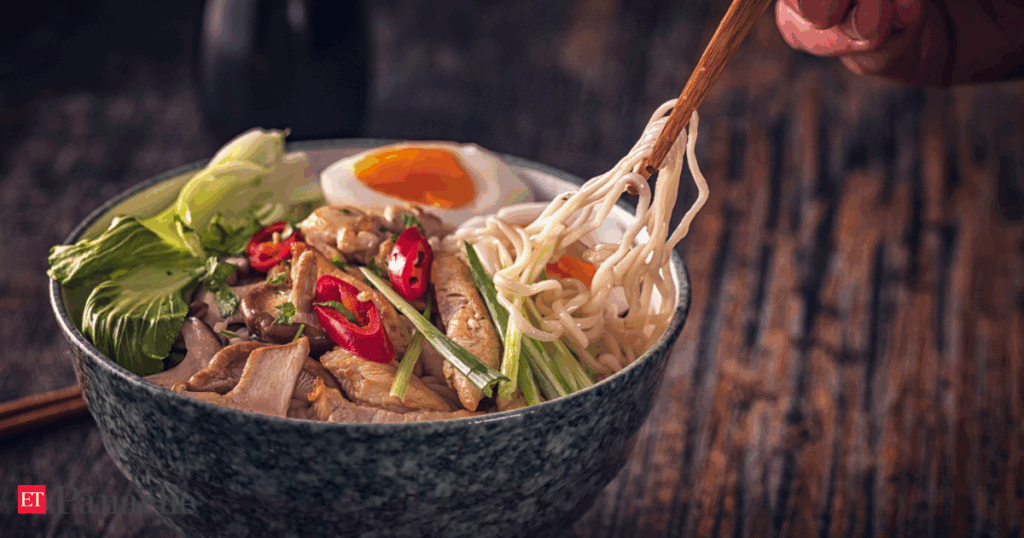
A steaming bowl of ramen may feel like the ultimate comfort food, but new research suggests that indulging too often could come with dangerous consequences. Scientists from Yamagata University School of Medical Science in Japan have linked frequent ramen consumption to an increased risk of premature death. The findings were published in the Journal of Nutrition, Health and Ageing.
The study tracked 6,725 adults over the age of 40, dividing them into groups based on how often they ate ramen: less than once a month, one to three times monthly, once or twice a week, and three or more times weekly. Over an average of four and a half years, 145 participants died, with 100 deaths from cancer and 29 from heart disease. Alarmingly, men under 70 who consumed ramen three or more times weekly had a noticeably higher risk of mortality.
A Staple With Hidden Risks
Ramen, with its rich pork-based broth, chewy noodles, and savory toppings, is a staple across Japan and a global favorite in countries like the US, UK, and Australia. However, its high salt content has raised concerns. Researchers explained, “Ramen noodles and their soup contain high salt content; therefore, frequent intake can lead to high amounts of sodium, which may increase the risk of salt-related diseases, such as stroke and gastric cancer.”
The Study Behind the Warning
The announcement comes as the global conversation about dietary health risks intensifies. The study’s findings are particularly concerning for frequent consumers of ramen, especially when combined with other lifestyle factors. According to the research, those who consumed at least half of the salty broth and also drank alcohol faced an even greater risk. The study also noted that heavy ramen eaters tended to smoke, drink, and have higher body mass index scores, compounding the health dangers.
“Frequent intake of ramen noodles might be associated with mortality risk in men, aged under 70 years and those who consumed more than 50% of the noodle soup and alcohol,” the researchers concluded.
Broth and Lifestyle Factors Matter
While the authors emphasized that the study was observational and does not prove ramen directly causes early death, the association is strong enough to warrant caution. The findings highlight the health risks of excessive sodium intake and stress moderation. The move represents a significant addition to the growing body of research on the impact of diet on health.
This development follows a series of studies examining the health implications of popular comfort foods. Experts suggest that while an occasional bowl of ramen is unlikely to harm most people, moderation, balanced nutrition, and awareness of salt intake are key to long-term health.
Implications and Forward-Looking Analysis
The implications of this study are far-reaching, especially for countries where ramen is a dietary staple. Public health officials may need to consider new guidelines or public awareness campaigns to educate consumers about the potential risks associated with high sodium intake. Meanwhile, ramen manufacturers might explore ways to reduce sodium content without compromising flavor.
As the global community continues to grapple with dietary health challenges, this research underscores the importance of informed food choices. The findings serve as a reminder that even beloved comfort foods can pose hidden health risks when consumed excessively.
Looking forward, further research could explore the specific mechanisms by which high sodium intake contributes to mortality risk, potentially leading to more targeted dietary recommendations. Until then, consumers are advised to enjoy their ramen in moderation and be mindful of their overall dietary habits.





